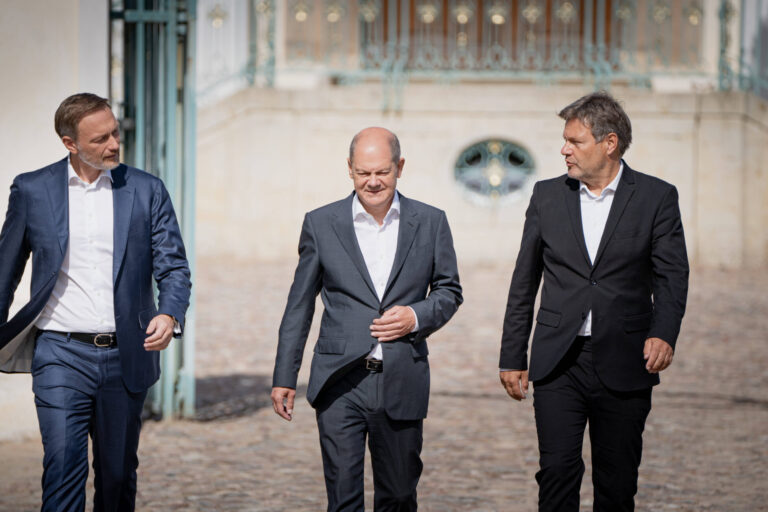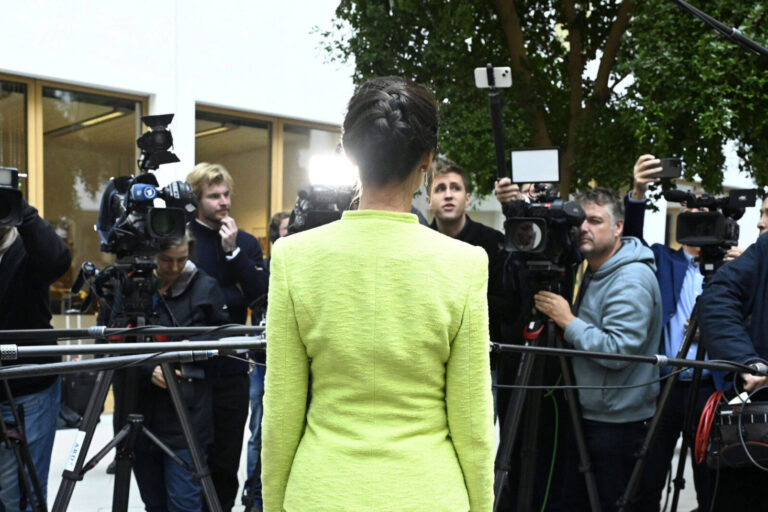Russia’s invasion of Ukraine has been a setback for the cause of a Just Transition in Germany and across Europe. High energy prices, shortages of essential goods, rising inflation and the soaring cost of living all fuel rising social inequality. Furthermore, the risk of job losses is growing. Many companies are incapable of paying increased production costs, especially those with high energy consumption, resulting in less money to invest in greening their operations and making their production process more sustainable. Moreover, the crisis and ensuing gas shortage mean that German coal-fired power plants must be run more intensively.
Nonetheless, laying the foundations for a Just Transition is an urgent task. This implies a different political approach towards greening the economy. The effects on jobs, income distribution and regional economic growth must be considered just as much as the reduction of carbon emissions. Climate policy entails much more than environmental policies.
The challenges of the present era are to bring together the social and ecological dimensions as an integrated whole.
The guiding principle of an ambitious climate policy should be a Just Transition where no household or community is left behind. For trade unions and progressives, there are five priorities in shaping a Just Transition in the current era:
- Providing government support to private households and companies to protect jobs and livelihoods
The state must provide significant fiscal support to prevent social scarring given the living standards crisis. Protecting both working people and companies is essential to avoid job losses and prevent a sharp rise in social inequality. An energy price cap is urgently needed. - Energy security and a boost for renewables
A secure energy supply for private, commercial, and industrial consumer groups must be guaranteed as a key aspect of public service provision and the public interest. A massive expansion of renewable energies is the most important measure in minimizing Germany’s dependence on fossil fuels and achieving climate targets. - Just Transition, just finance
For a successful transition massive public and private investments are required. They are especially needed for climate-friendly infrastructure, innovative technologies and low-energy insulated buildings. Climate neutrality will not be achieved if today’s attitude towards debt continues. In addition, the costs of the current crisis are enormous. The financing of the transition has to be socially just. High incomes, assets and inheritance must be taxed much more heavily. Capital and the private sector must be more active in financing climate adaptation to ensure the burden is shared fairly. In addition, an excess profits tax makes sense to absorb the huge crisis-related profits of big companies, particularly in the energy sector. - A Just Transition framework is needed
Furthermore, a Just Transition has to be actively shaped by governments in cooperation with trade unions and employers working together. Leaving the transition to the market would increase the risk of social and environmental dumping. Instead, there has to be a politically sustainable framework to bring together climate protection, decent work and sustainable prosperity. - Workers are key to the transition
Workers are at the very core of the just climate transition. They have intricate knowledge of the sectors in question and are a trusted partner in industrial relations and bargaining processes. Studies have shown that companies with co-determination, meaning workers represented on company boards, are more sustainable and are doing more to avoid greenhouse gas emissions. Workers know their company best and have the power and knowledge to promote innovation. Works councils are key players in implementing climate protection on the ground. Co-determination and collective bargaining agreements ensure greater fairness in the company while also guaranteeing economic and social participation as well as security, especially in times of change. Decent work, binding collective agreements and co-determination must be strengthened to create an environment of trust and acceptance. This must apply to existing sectors as well as new jobs and industries.
What are the trade unions doing to contribute to the Just Transition? A lot! One outstanding example is the “Revierwende” project. It is a key contribution to ensuring worker participation and representation of their interests in phasing out coal mining and coal-based energy production. The project will support workers, works councils, local unions, and employees through its regional offices in all the remaining coal regions. With a staff of more than 20, the Revierwende-Team is active where it counts: the home regions and workplaces of those most affected by the coal phaseout. It is exactly this kind of programme that will help to ensure a socially and environmentally just transition across Europe.





